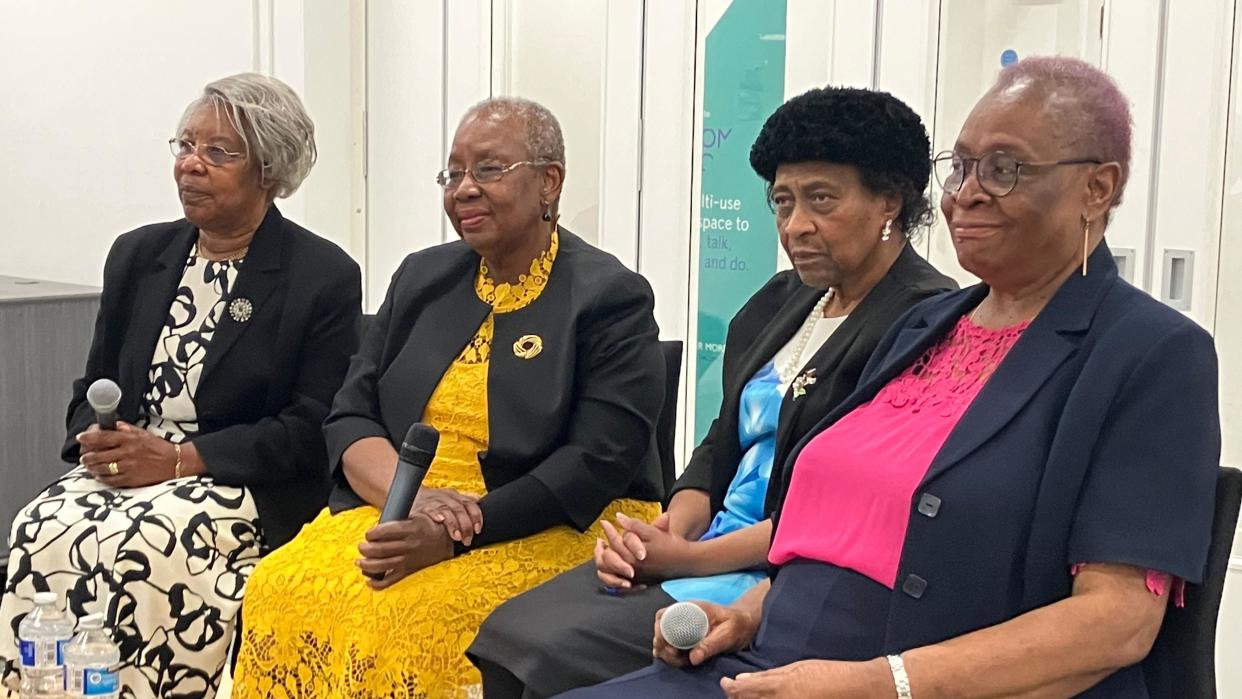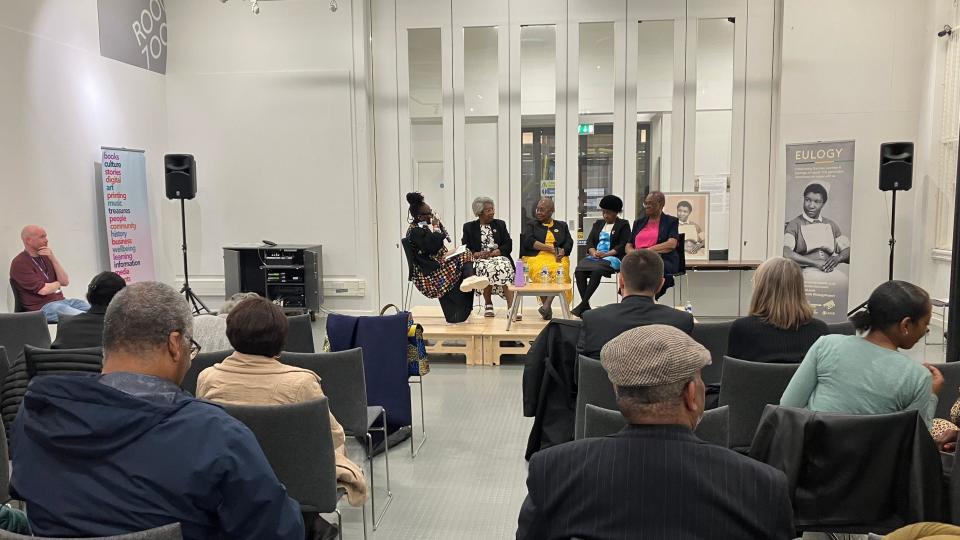Windrush nurses share memories of the 1960s NHS

Four "pioneering" NHS nurses who emigrated from the Caribbean to Yorkshire in the 1960s as part of the Windrush generation have shared their experiences.
They moved to post-war Britain to plug labour shortages, with the health service one of the main employers that recruited young migrants from the Commonwealth.
The nurses appeared at Leeds Central Library to speak about their lives to mark Windrush Day on 22 June.
Their cohort, many of whom settled in the Chapeltown area of Leeds, were named after the SS Empire Windrush, a vessel which brought the first group of workers to the country.
Yvonne English, Dorothy Stewart, Gloria Hanley and Adora Maynard spoke about their achievements and efforts to combat health inequalities.
Ms English, 80, now lives in Wakefield and arrived in England from Jamaica in 1965.
She trained as a nurse at Harrogate District Hospital before transferring to St James’s Hospital in Leeds, where she worked for 20 years.
Recalling her arrival, Ms English said the early days were "very difficult" and she faced a lot of discrimination.
She said: "They didn’t think we lived in houses, they thought we lived in huts.
"I would get asked by patients how I felt wearing ordinary clothes rather than grass skirts, and I couldn’t understand what they were talking about.
"I was just flabbergasted."

However, Ms English said she shared a close bond with the other nurses and they looked out for one another.
"When we first arrived we didn’t know each other but we became like sisters,” she said.
"We helped build the NHS. We got on with our jobs and we hoped that by doing that and showing kindness to people they would realise that we were just ordinary people like them."
Dorothy Stewart, 72, also emigrated from Jamaica. She was only eight years old when she joined her parents, who had moved to Leeds in the late 1950s.
Ms Stewart spent time training to be a nurse before becoming a midwife in Leeds in the 1970s.
“I always wanted to be a nurse because I had an instinct to care for people and I did whatever it took to become one," she said.
Working her way up through the system, Ms Stewart went to night school to get the qualifications she needed to progress.
“We fulfilled a need within the NHS and the patients gradually got used to the fact that these nurses were special and really enjoyed their work.”

Speaking at the event, organised by Jamaica Society Leeds, Ms Stewart said the women were "really pleased" to be there.
“It’s very important for our young people, many of them don’t know anything about the history," she told the BBC.
The Legacies of the Leeds Windrush Generation project was funded with a grant from the government’s Windrush Day scheme.
Jamaica Society Leeds member Melody Walker said the event honoured and celebrated the work of the Windrush generation nurses in Leeds.
"It isn’t just about their contribution to the NHS, but also their activism in getting the wider health sector and working medical professionals to take health conditions which affect people of Caribbean and African descent living in the UK seriously," she added.
Many Windrush migrants also worked as teachers or on the railways.
Follow BBC Yorkshire on Facebook, X (formerly Twitter) and Instagram. Send your story ideas to yorkslincs.news@bbc.co.uk


